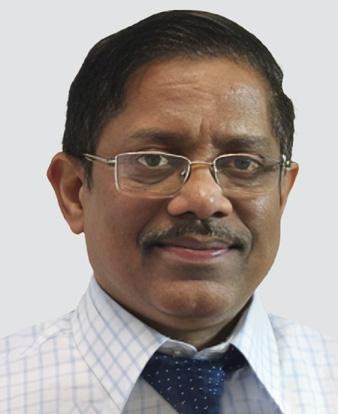
The nation has set ambitious goals to achieve net zero emissions by 2070, and NITI Aayog, in collaboration with the Ministry of Power and the Ministry of New and Renewable Energy, has laid out a comprehensive roadmap to achieve this.
Current power scenario
As of now, India’s installed power capacity stands at approximately 425 gigawatts, comprising a mix of thermal, renewable, and nuclear energy sources. Total energy consumption has reached 70.5 terawatt-hours,
With an estimated power demand exceeding 700 gigawatts by 2047, focusing on renewable and low-carbon energy systems becomes increasingly critical.
India aims to install 500 gigawatts of renewable energy capacity by 2030 and 600 gigawatts by 2032 to meet future energy needs. This necessitates a total installed capacity of about 1,100 gigawatts to support sources.
The role of renewable energy
Bu hikaye EPR Magazine (Electrical & Power Review) dergisinin November 2024 sayısından alınmıştır.
Start your 7-day Magzter GOLD free trial to access thousands of curated premium stories, and 9,000+ magazines and newspapers.
Already a subscriber ? Giriş Yap
Bu hikaye EPR Magazine (Electrical & Power Review) dergisinin November 2024 sayısından alınmıştır.
Start your 7-day Magzter GOLD free trial to access thousands of curated premium stories, and 9,000+ magazines and newspapers.
Already a subscriber? Giriş Yap

Shifting from resistance to adoption of RE
It is important to note that DISCOMS struggled financially even before the widespread adoption of solar energy. These challenges were familiar and were exacerbated by long-standing inefficiencies and financial mismanagement.

Changing BESS landscape in India
Self-sufficiency in battery storage is crucial for energy security, cost reduction, and sustainability. Key policies like incentivising domestic lithium mining, supporting R&D in alternative batteries, and promoting manufacturing hubs via PLI is boosting the sector.

Dhash PV pioneering future of solar technology in India
The company offers a comprehensive solution encompassing all DC components, from the PV module to the inverter.

Quality control is the keystone of the solar energy revolution in India
As India strives for 500 GW of solar capacity, rigorous quality assurance is essential to ensure system reliability, attract investment, enhance efficiency, and secure a sustainable energy future.

Domestic RE capacity hits new milestone
The total renewable energy installed capacity surged by an impressive 24.2 GW 13.5%) in just one year, reaching 203.18 GW in October 2024, up from 178.98 GW in October 2023.

Modernisation of power grid infra essential for seamless solar energy integration
Rayzon Solar leads the renewable energy revolution, pioneering high-efficiency solutions with cuttingedge N-Type TOPCon and 210R solar panels for sustainable energy advancements.

CMCE technology neutralises atmospheric charge effects
Lightning strikes on power transmission lines, substations, and power generation facilities can cause extensive equipment damage, leading to costly repairs and prolonged downtime.

Use of integrated transformer test facilities
Static Frequency Converter (SFC) is designed to test all types of power and distribution transformers as it provides variable output voltage and variable output frequency.

Lamco Transformers unveils cutting-edge innovations for RE integration
Lamco Transformers is committed to playing a vital role in the country's journey toward a sustainable energy future by combining innovative designs, cutting-edge technologies, and strategic collaborations.
Morigaon set to become country's semiconductor premier manufacturing site
Morigaon in Assam, spearheaded by Tata Semiconductor Assembly and Test Pvt Ltd (TSAT) aligns with the nation's broader goal of establishing a self-sufficient semiconductor ecosystem.